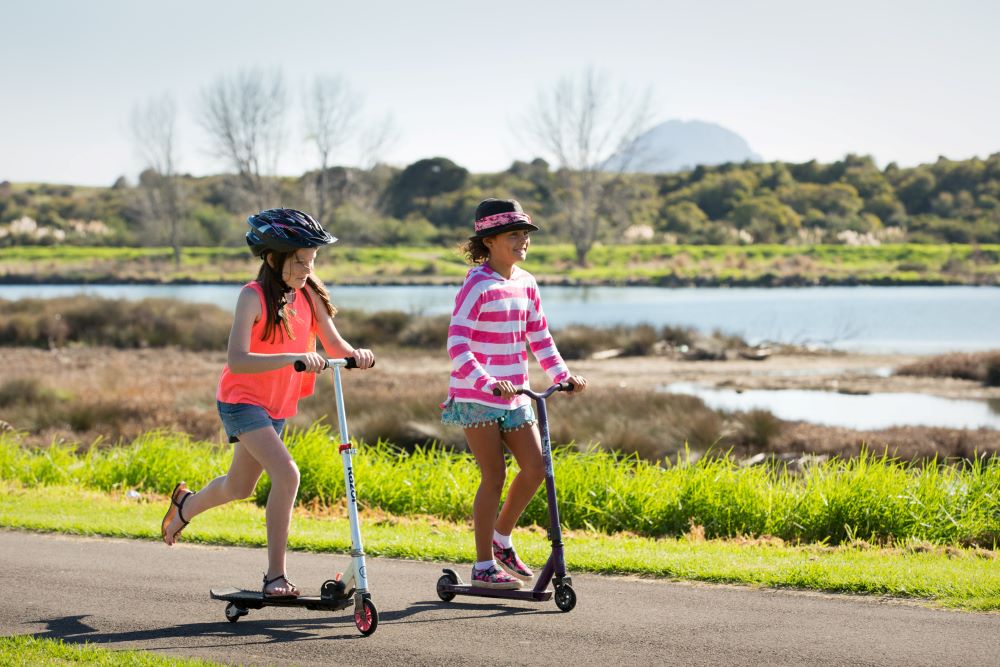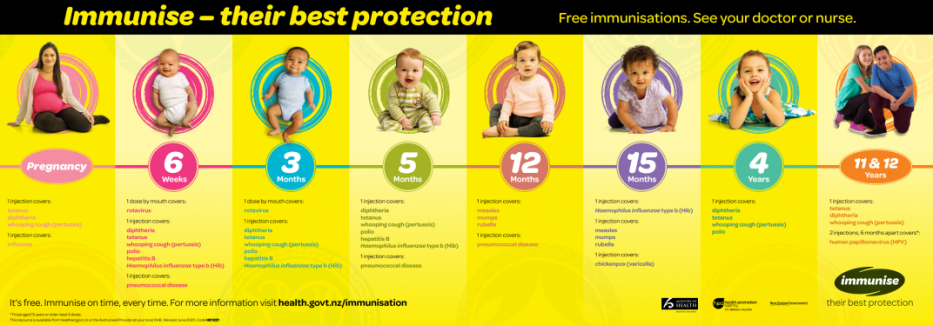You’ll need at least 30 to 45 minutes for the whole immunisation appointment (this includes 20 minutes of waiting time after the vaccination). Allow a little longer if you’re bringing more than 1 child, or other whānau, for immunisation.
If you have a Well Child Tamariki Ora My Health Book, bring it along to the appointment so the vaccinator can update the immunisation history. Do not worry if you do not have this, immunisations are also recorded in the National Immunisation Register.
From 15 months old, your vaccinator can also provide an immunisation certificate if you need to show your early childhood centre or school that your child has been immunised.
You do not need to bring ID to the appointment.
Changing an appointment
If need to change your appointment time, call to let them know as soon as possible. This allows you to make a new appointment time that works better for you, and your previous appointment can be given to someone else.
If you’re unwell on the day of the appointment
Contact your health provider. They will be able to advise if the vaccination should still be given.
If you have COVID-19 you will need to reschedule.
Tips that may help you, and your tamariki, feel more comfortable
- Choose clothes that can be removed or rolled up to make the injection easier. Babies under 12 months have all their injections in the thigh. From 1 year, tamariki have their injections in the arm or thigh.
- Bring any kai or drink you’ll need during this time.
- Bring your child’s favourite toy, blanket, game, or book along as a distraction and to keep them busy afterwards.
- If you’re nervous, bring a whānau member or friend for support.
At the appointment
Your vaccinator will talk to you about the immunisation and what to expect afterwards. There will be time to ask questions and you will be asked if you’re happy to go ahead with the immunisation. In some situations you might need to sign a piece of paper to show you agree to the immunisation.
Tips for pēpi and tamariki immunisations
- Talking, cuddling, and holding your tamariki will help distract them from the injection and soothe them afterwards if they're upset.
- Try to stay calm. Babies and children can tell when their parents are feeling anxious.
- Feeding your baby (including breast or bottle feeding) while they’re being immunised may help them feel more comfortable.
If you need extra support
When you make an appointment, or when you arrive, make sure you let the team know if you or your tamariki might need some extra help.
They may be able to help by:
- providing a space away from other people
- supporting you with other tamariki you bring to the appointment
- accessibility arrangements and mobility assistance
- arranging for a home visit (this may be through another health service).
If you’re scared of needles
Let the vaccinator know if you or your child is scared of needles. They’re trained to make you as comfortable as possible. They can provide distractions and techniques to help reduce pain and anxiety.
After the immunisation
You’ll be asked to wait up to 20 minutes after the vaccination to make sure you and your tamariki are feeling OK.
Some people experience mild reactions after immunisation. They may develop a fever or experience tenderness, swelling and redness where the injection was given. This is the body’s normal response to immunisation and shows the vaccine is working. Symptoms usually settle after a day or 2. If you do not experience any side effects that’s OK too, the vaccine is still working.
If you’re concerned about your tamariki after their immunisation, contact your family doctor or nurse. You can also call Healthline any time on 0800 611 116.
How to treat common reactions from immunisation









